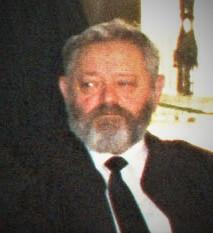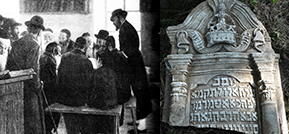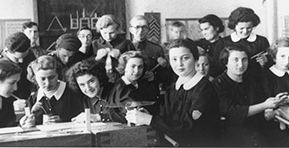From Rzeszów and Krakow to Jerusalem: Justice Tzvi Elimelech Tal Has Passed Away

Tzvi Tal has just passed away in Jerusalem at the age of 94. One of Israel’s leading jurists in Israel and a Supreme Court justice, he presided over some of Israel’s most prominent legal cases in Israel in the 1980s and 1990s.
Tal was born in 1927 as the youngest of seven children, to Chaim Teitelbaum (Richter) and Esther nee Steinmetz, in Reisha (Rzeszów), Galicia, Poland. In 1932, Teitelbaum-Tal moved with his family from Rzeszów to Krakow, and in 1935, at the age of eight, he immigrated to the Land of Israel with most of his family. His sister, her husband, and her son, who remained in Poland, perished in the Holocaust. In Israel, Tal studied in the first class of the Bnei Akiva Yeshiva in Kfar Haroeh, and later served in the Haganah and in the Israel Defense Forces.
Tal began his legal career studying law at the Hebrew University in Jerusalem, in its Law Faculty’s inaugural year. After graduating in 1954, he served as a lawyer for over 20 years before being appointed as a judge in the Jerusalem District Court in 1978. He was elevated to Israel’s Supreme Court in 1993, where he served until 1997. Even after his retirement from the Supreme Court, Tal continued his public and legal activity, first as the chairperson of the Justice Ministry’s Estates Committee, and later as head of the commission tasked with discussing the deferral of service for yeshiva students, which became known as the “Tal Commission.”
Tal was married to Hannah, the daughter of the author Dov Natan Brinker. They had six children together, but lost their son, Moshe, who fell in the Yom Kippur War.
In 2010, Tal published his autobiography Until Sundown: Chapters of the Life of a Former Judge (Hebrew), which opens with a description of the Galician-Polish chapter of his life in both Rzeszów and Krakow, among the earliest Jewish communities in Poland. Tal grew up within a traditional Jewish environment in a Hassidic family. His father was a follower of Rabbi Zvi Elimelech Spira, the founder of the Blazower Hassidic court, and he named his son Zvi Elimelech Teitelbaum (Tal) after this spiritual leader. Alongside the descriptions of Hassidic life, the book presents the challenges of life of the Jews in the area in the early 20th century, including attempts to enlist them in the army of the Habsburg emperor, the difficulties of making a living, and the unstable situation in the Polish period. However, his book is also a testament to the rich and vigorous reality of Galician Jewry religious and cultural live.
For example, Rzeszów is described with its many synagogues, dozens of bate midrash and Jewish libraries serving a population of more than 15,000 Jews, who constituted about forty percent of the general population. This “city and mother in Israel” that boasted of its great rabbis, is where Jews lived a vibrant life of Torah, culture, charitable giving, and politics. Tal reports that the Zionist movement was also active and vibrant in the city. Similarly, Jewish Krakow of that time is presented through its history, its great rabbis and prominent personalities, institutions, and legends. This unique and dynamic center of Jewish life, with nearly 60,000 Jewish inhabitants, was totally destroyed in the years of Nazi rule in World War II.
As someone who managed to escape from Europe with his family a few short years before the Shoah, Tal combined his commitment to the traditional, religious way of life in which he was born and raised with the realization of Zionist, Israeli dreams. Sadly, he paid the most crushing personal price involved in the establishment of the state with the loss of his son defending the State. Rising to the pinnacle of the Israeli legal system to which he made significant contributions, Tal stands not only as an example and role model of the generation of immigrants in the early years of the State, but as an inspiration to Israeli society in general.
Among his other public activities, Tzvi Tal served as a board member of the Jewish Galicia and Bukovina Organization. The organization’s board bows its head in his memory and offers condolences to his family.
May his memory be a blessing!






